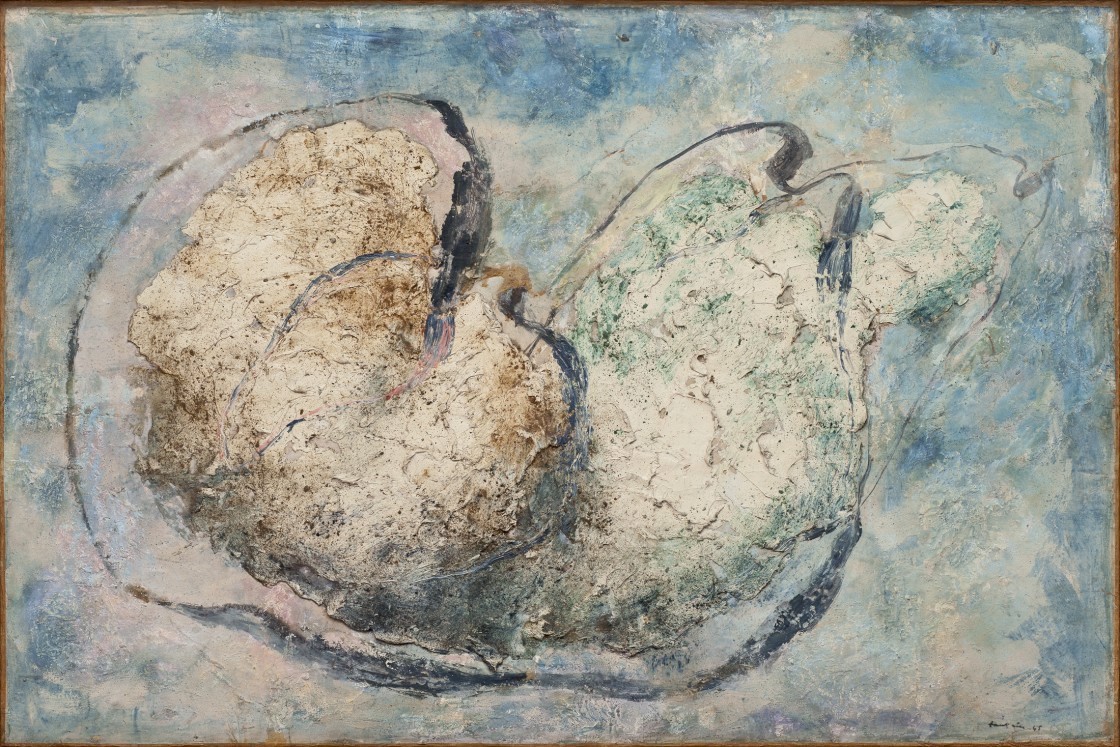A year since Do Not Expect Too Much from the End of the World amused us so, Radu Jude has now unveiled two new experimental found-footage films in Locarno. And true to his current media and mass–culture interests, they respectively concern junky Romanian broadcast television, and a splotchy, low-resolution livestream of a cemetery site. Entitled Eight Postcards from Utopia and Sleep #2, you could say one is his nostalgic YouTube supercut movie, the other his The Shrouds.
They’re both quite strong: satisfying additions to his corpus, not redundant side projects. They are separate and self-contained works that complement each other: definable as compilations of found material, yes, but which stick to rigorous formal guardrails before deconstructing those very boundaries. Locarno’s premiere screening exhibited Postcard followed by Sleep; future presentations could well mimic that, yet it would also be incorrect to perceive them as one complete film sundered in two.
If Eight Postcards from Utopia is undoubtedly a compilation-essay, it’s an unusually crowd-pleasing one. Co-directed with philosopher Christian Ferencz-Flatz, it surveys Romanian-produced TV advertisements from the country’s post-Ceaușescu era up to the present day, the found material first presented unadorned and unabridged before Jude starts to hauntologically alter and manipulate them à la passages of Do Not Expect. Shilling telecom deals, confectionary, and grooming products, they are lively and often creative in and of themselves––Tim Heidecker and Eric Wareheim would love the bombastic, lo-fi graphics––but Jude and Ferencz-Flatz are more concerned with their latent references and instructions towards ideological change, referencing the country’s hard ’90s turn from a planned economy in favor of free-market and Western-consumer values.
No question: the takeaways can’t avoid a certain obviousness, and the prescriptions of John Berger and semiotic theory regarding our visual culture have become received wisdom; we know we’re being sold to, aware that an advertisement for a product is actually one for a way of life. Having worked for a creative agency responsible for generating spots like these, with some part of his own portfolio, Jude knows he’s complicit in wreaking this unsatisfactory alternative to the country’s also-troubled past. Divided into short, thematically relevant chapters (“History of the Romanians,” “The Ages of Man”), these Postcards are dreamy dispatches from somewhere only existing in our covetous imagination––a utopia.

Sleep #2
The two films also map a hard divide between art and commerce, Sleep #2 in the former case. A faraway transmission from a a memorial site convincingly rethought as an art installation, here Jude (working and editing it by himself) cuts “highlights” from what’s described as a “live cam” [sic] of Andy Warhol’s Pittsburgh gravesite, and showing his working, he even provides the URL in onscreen text prior to the first shot (https://www.warhol.org/andy-warhols-life/figment/). Whilst Postcards’ mode is familiar from many recent docs and the likes of Adam Curtis, considerations of death tourism, or even atrocity tourism, feel more pertinent. We do behave self-consciously (and some are willingly disrespectful) in these environments, and spanning an entire year, shown by the US East Coast weather conditions, we glimpse a weird inventory of human behavior.
Just over an hour long, Sleep #2 is one of the most demanding and static features I’ve seen in a while, with darkened, theatrical viewing conditions an imperative. And the old critical saw that it’s “more rewarding to think about than watch” also wandered into my mind, but sometimes you need to play through the pain, to let the impact and results the film seeks bloom in your head. It’s at once an apt homage to Warhol’s own conceptually pure, beautiful, and minimal features––especially Empire and the original Sleep, single and beautifully still compositions complicated by gradual alterations––whilst also creating an original, self-reflexive artwork, reborn on his remains like newly grown flora.
Eight Postcards from Utopia and Sleep #2 debuted at the 2024 Locarno Film Festival.
